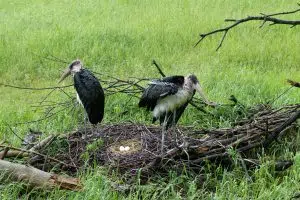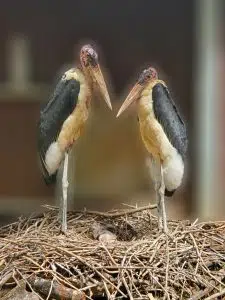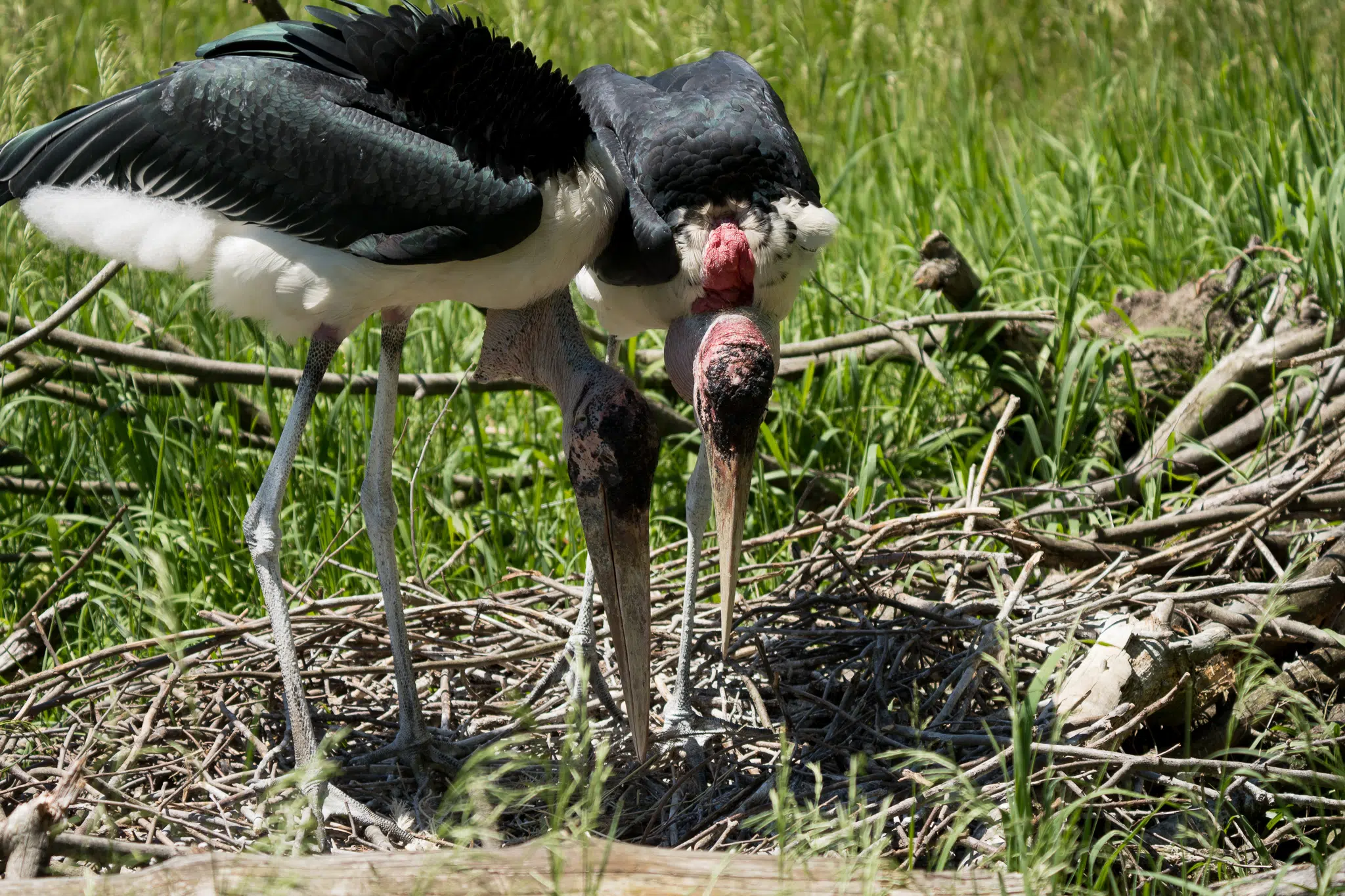BATTLE CREEK, MI (WKZO AM/FM) — Binder Park Zoo officials announced Wednesday that a pair of marabou storks delivered their own bundle with the birth of a stork chick.

Ruthie and Irving, a pair of marabou storks, with their nest at the Binder Park Zoo. (Photo courtesy of the Binder Park Zoo).
Ruthie and Irving are longtime residents of the savanna exhibit at Binder Park Zoo. Officials say that while they’ve built nests in the past, this was the first time in 21 years that they actually produced eggs. Together, the pair constructed a 5′ wide nest with Irving sitting on stones as stand-in eggs for practice until Ruthie laid a clutch of three eggs
Zoo staff switched out the eggs with “decoy” eggs, while the real ones were transported to the Detroit Zoo for incubation.
“While marabou storks are a species of least concern, Irving and Ruthie are genetically valuable so we did want to take extra measures to protect the eggs. We also had a little concern about Irving and Ruthie’s lack of experience as parents,” Curator of Collections at the zoo Kathryn Sippel said in a statement. “We moved the nest to a secure location at our vet hospital to monitor them by camera. As the incubation period neared completion, the eggs were returned to the nest with the storks seemingly none the wiser.”
Of the three eggs, only one was viable, and a healthy chick hatched on July 10. The sex of the chick won’t be known until DNA testing can be done.

Ruthie and Irving, a pair of marabou storks, with their baby chick at the Binder Park Zoo. (Photo courtesy of the Binder Park Zoo).
“It’s a mystery why it took them so long to make a family – exciting for sure, but definitely a mystery,” Sippel added.
Binder Park Zoo is the only accredited zoo in Michigan holding marabou storks and one of only 12 zoos with storks of both genders. Records indicate that both Ruthie and Irving were born in January 1998. They are listed as born in the wild, but little else is known about their origins. They arrived at Binder Park Zoo in May 1999 to join the Wild Africa exhibit that opened to the public that same year and have been at the zoo since that time.
The marabou stork (Leptoptilos crumenifer) is a massive bird found in Africa, from the Sahara desert to South Africa. They live in the savannas and open areas, but will also live close to human habitation. They are frequent scavengers, eating carrion (dead animals), fish, reptiles, insects, birds, frogs, and rodents and food scraps near homes, farms, and landfills in Africa.
At the zoo, they dine on smelt or a small fish called capelin, mice and a commercially prepared meat diet.
They are sometimes called the “undertaker” bird due to their appearance from behind – black cloak-like wings, skinny white legs and a shock of white “hair” on their heads.
The new family will be off exhibit for the rest of the zoo season, but zoo guests can see Ruthie, Irving and their chick in real time through the ZooCam at www.binderparkzoo.org/ZooCam.
A time-lapse video is also available on the website that shows the chick emerging from the egg and its progress in the nest.
The birds will move to their winter quarters for the off-season and visitors can expect to see all three on the savanna next spring.
Marabou storks are a Species Survival Plan (SSP) animal through the Association of Zoos and Aquariums (AZA ).









